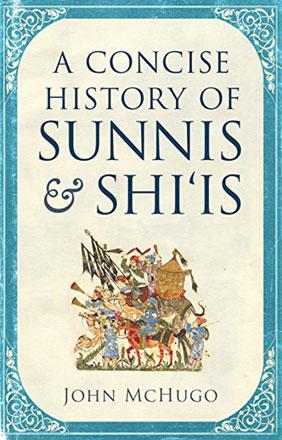You are here
‘Once again the play thing of foreign interests’
By Sally Bland - Nov 09,2014 - Last updated at Nov 09,2014

Syria: From the Great War to Civil War
John McHugo
London: Saqi Books, 2014
Pp. 289
While 40 years of seldom-interrupted stability under Hafez and Bashar Assad’s rule may make today’s chaos appear as an anomaly, this book points to the enormous pressures and nearby conflicts that have plagued Syria throughout its modern history, and how they connect to the current war. British lawyer and Arabist, John McHugo examines Syria’s trajectory in a regional and international context, aiming to answer several questions: “Is the sequential implosion of these closely connected Arab countries [Palestine, Lebanon, Iraq and Syria] just a coincidence? Or is there a deeper, underlying cause that brought conflict to them? In either case, what lessons can be learned? (p. 26)
After a brief review of prior history, the book focuses on the aftermath of the World War I, so critical in the Syrian state’s formation, as it brought the division of Greater Syria and imposition of the French Mandate. McHugo gives a precise account of French colonial policy which encouraged the separatism of minorities, chiefly the Maronites, Alawis and Druze. While this policy worked only with the Maronites, leading to the formation of Lebanon as a separate state, it had a long-lasting impact on Syria’s political, economic and social structure.
Despite majority sentiments for a unified, independent Greater Syria under the leadership of King Faisal and the broad anti-colonial revolt of 1925, the French administration fought the demands of Syrian nationalists tooth-and-nail. “It is not an exaggeration to say that the actions of the great powers in the aftermath of the Great War and over the following decades deprived the people of Syria of any chance of a normal development to nationhood.” (p. 27)
Democracy and economic advance were always fragile, and post-independence, other “Arab states would exploit whatever divisions they could open up in Syrian society”. (p. 114)
At the time of the World War II, Syria was deeply affected by the Arabs’ loss of Palestine, and the American embassy and CIA favoured the coup that replaced President Shukri Quwwatli with Husni Zaim, because the latter was willing to make peace with Israel (though Ben Gurion rejected his offer).
This set a precedent that soon become the rule with the US putting Israel’s interests ahead of democracy and Arab states’ needs. More coups followed, as did the Cold War. “Two tugs of war were now taking place over Syria: the fight for supremacy within the Arab world between Egypt and Iraq, and the struggle of the Western powers to keep Communist Bloc influence out of the Middle East.” (p. 135)
While Western powers requested facilities in case of war with the USSR, “the urgent Arab need for defence again Israel and the demand for the restoration of Palestinian rights were completely overlooked.” (p. 133)
McHugo traces the rise of the Baath Party, the rule of Hafez Al Assad and the party’s downward spiral from championing unity and social justice to dictatorship and cronyism, as well as the parallel rise of religion’s importance in politics. At all times, his evaluations are judicious and fair. While condemning the repression and violence exercised by the regime, he also acknowledges its achievements and the tremendous challenges it faced over the years. After Kissinger’s shuttle diplomacy led to Egypt’s separate peace with Israel, distancing Syria’s chances of regaining the Golan Heights, the “failure to achieve a comprehensive Arab-Israeli peace had knock on consequences which made reform in Syria even harder than it would otherwise have been”. (p. 159)
Today, the outcome of the failure to make meaningful reforms is all too apparent: “Syria is once again the play thing of foreign interests. Regional actors have lined up behind sectarian ideologies, caring little for the suffering on the ground.” (p. 252)
Highly relevant to understanding Syria’s recent history is McHugo’s refutation of the charge of sectarianism that is often levelled against the Assad regime: “This was not a case of sectarianism in the sense of an attempt to recreate Syria as an Alawi nation or state, and certainly not a sectarian privileging of Alawis by law, but a very traditional use of patronage to extend the influence of the ruler and insure his survival.” (p. 189)
This book exhibits in-depth knowledge of Syria gleaned not only from scholarly research but also from McHugo’s travels in Syria, starting in 1974 when he was a student of Islamic history at AUC, and most recently in April 2012.
His impressions and anecdotes from those visits add a human touch and give interesting insights into the interplay between tribe, sect, class and regional features in Syria.
This book is a must-read for those who seek an informed opinion about Syria’s civil war, far removed from propaganda and bias. The text is complemented by a chronology of Syria’s history from 331 BC when it was conquered by Alexander the Great, until the 2014 breakdown of the Geneva II diplomatic initiatives, five excellent maps, and an extensive bibliography.
Related Articles
The Alawis of Syria: War, Faith and Politics in the LevantEdited by Michael Kerr and Craig LarkinLondon: Hurst and Company, 2015Pp.
A Concise History of Sunnis and Shi’isJohn McHugoLondon: Saqi Books, 2017Pp.
DAMASCUS — Syrian President Bashar Assad met with Oman’s top diplomat, Yussef Bin Alawi, in Damascus on Monday, in a rare visit for a Gulf o
















